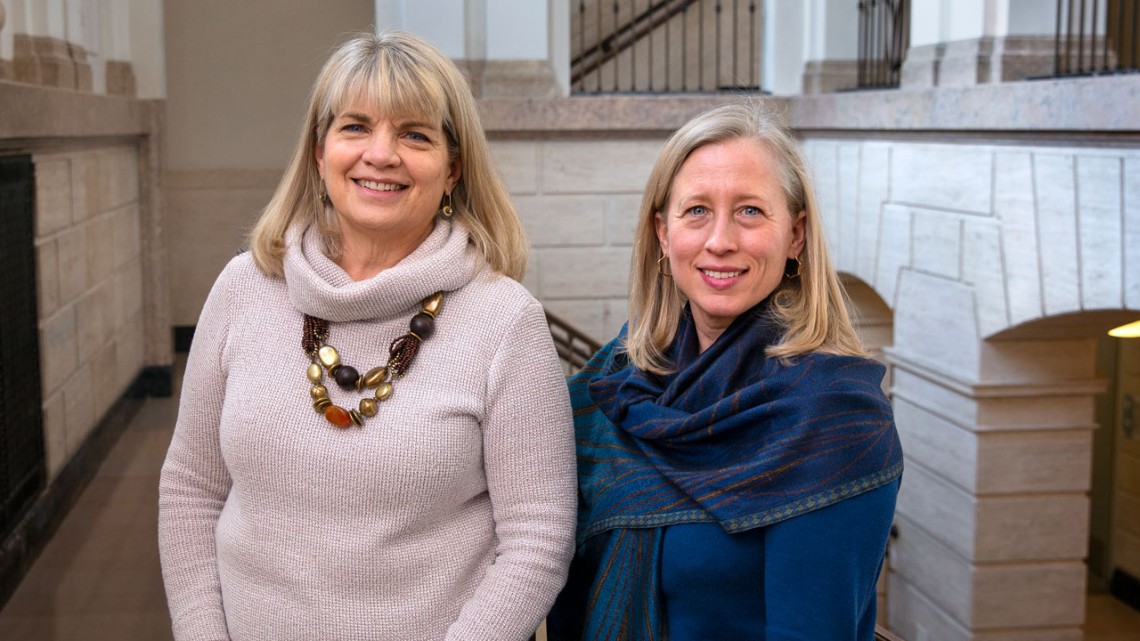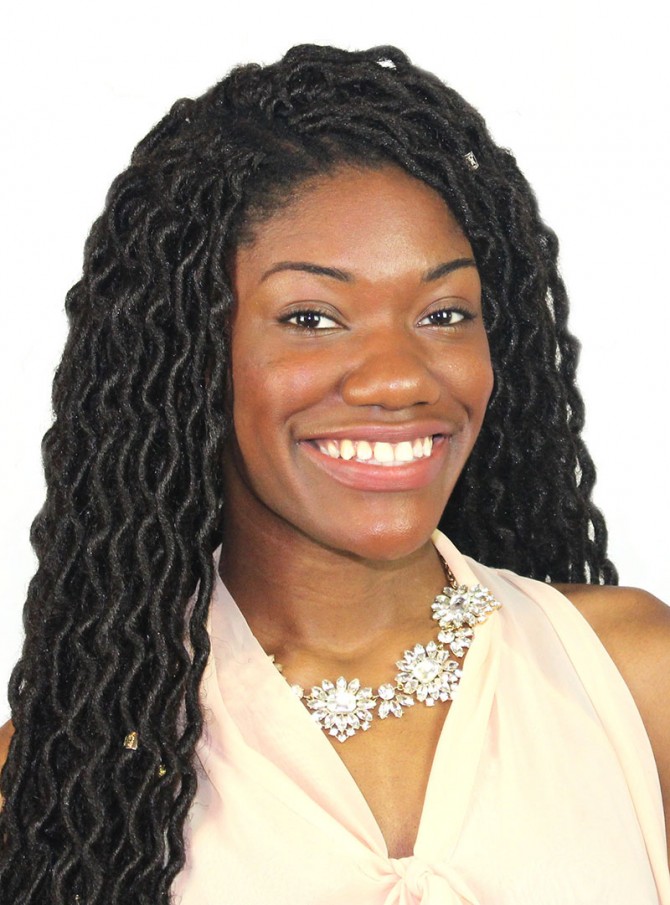
Deborah Streeter, left, faculty director of the Bank of America Institute for Women's Entrepreneurship at Cornell, and Kirsten Barker ’92, the institute's program director.
Cornell launches institute for women’s entrepreneurship
By Susan Kelley
In just four years, Khadijah King of Bay Shore, New York, founded a company, identified a target market, attracted loyal customers and generated a profit.
She wanted to expand her business, Inside Kinks, her line of products for natural hair, but she didn’t have any formal business education. “I was kind of winging it,” she said.
That all changed when she began taking a free, 12-week online business certificate program last fall through the Bank of America Institute for Women’s Entrepreneurship at Cornell.
Through the program she learned how to effectively negotiate with partners and potential employees and construct contracts. “I knew I needed that before, but I didn’t understand the extent of it,” she said.
She also learned how to price her products and services and describe them so her customers understood their value. For example, she modified the descriptions of her hair oils and hair butters to include the benefits of each ingredient. “Being able to paint that full picture for my customers was crucial,” she said, “and I’ve started to see increases in those products being sold.”
King was one of 600 entrepreneurs who participated in the pilot of the certificate program. Now officially launched, the program offers entrepreneurs – especially women – the skills, knowledge and resources to build their own businesses. Sponsored by Bank of America through a four-year grant, the institute is housed at Cornell Law School; the program is taught by female faculty from across the Ithaca campus and delivered by eCornell.
“What is exciting to me is that, through an online environment, the institute is now offering something women – from across the U.S. and the world – have been looking for: a supportive and private place to brainstorm solutions for challenges and share strategies for success,” said Deborah Streeter, the institute’s faculty director and the Bruce F. Failing Sr. Professor of Personal Enterprise and Small Business Management in the Dyson School.
The program’s six two-week courses cover: customer discovery; the legal building blocks of a business; assessing and obtaining financial resources; growth leadership for women entrepreneurs; product development and digital marketing; and communication, negotiation and persuasiveness.
Despite the institute’s name, 90 percent of the program is gender-neutral and can benefit any entrepreneur. “As one would expect, the content presented in the legal and funding courses is more technical and straightforward, while material on negotiation and communication explores more specific considerations related to gender,” said program director Kirsten Barker ’92.
The institute initially planned to educate 5,000 entrepreneurs over four years. But the overwhelming demand for the pilot prompted them to increase the number of students to 10,000 over the same period.
Pilot participants rated the courses an average of 9.3 on a 10-point scale, Barker said.
“Our female faculty knocked it out of the park, and eCornell is a great partner,” she said. “Our students were engaged, and we had a diverse group.” Pilot participants were 56 percent African-American, 10 percent Hispanic and 7 percent Asian, Barker said.
The pilot also had a high completion rate: 55 percent of the students who started the program finished all six courses. That’s notably higher than the 6 percent to 9 percent of students who complete MOOCs (massive open online courses).
The courses are significantly different from MOOCs, Streeter said.
“Our courses combine video, visuals and text in manageable ‘bites,’ all carefully paced,” she said. “The concepts are reinforced with assignments, discussion and course projects that are tailored to the entrepreneur’s specific needs. In other words, the institute has combined practical, useful content; convenient and flexible accessibility; and the all-important human educator touch.”
That human touch made all the difference, entrepreneur King said.
“The instructors are taking the time to write paragraph upon paragraph of feedback. You can see that they’re invested in you,” she said. “That made me want to do even better on my assignments because I’m working on my business, but they’re working on the business with me. That one-on-one extra help was vital to my success in the program.”
Media Contact
Get Cornell news delivered right to your inbox.
Subscribe

